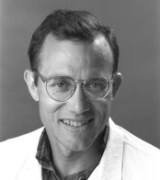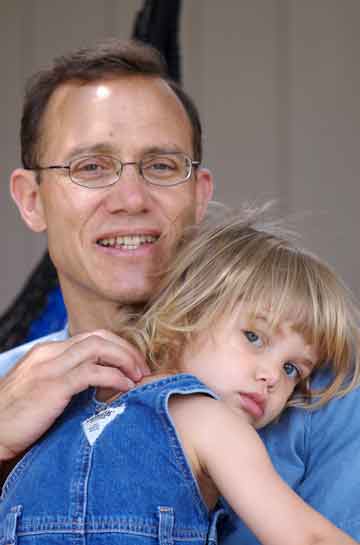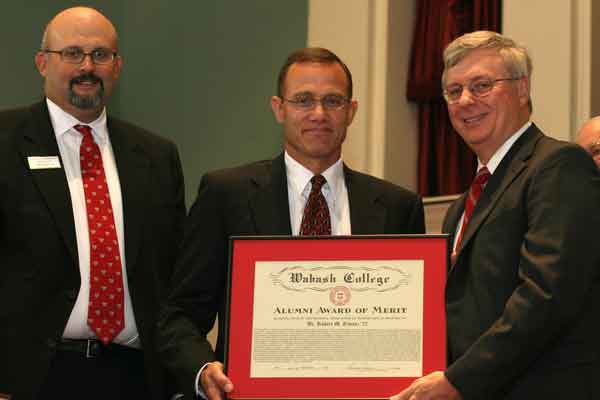 Wabash alumnus Dr. Bob Einterz ’77 was invited to speak at the prestigious Last Lecture Series near the end of the academic year at IUPUI. The Last Lecture Series is co-sponsored by IUPUI’s Senior Academy and the offices of the Chancellor and the Dean of Faculties.
Wabash alumnus Dr. Bob Einterz ’77 was invited to speak at the prestigious Last Lecture Series near the end of the academic year at IUPUI. The Last Lecture Series is co-sponsored by IUPUI’s Senior Academy and the offices of the Chancellor and the Dean of Faculties.
The Last Lecture is among the university’s most prestigious invited lecture programs. Nominations are sought from administrators across the entire university. This year’s Last Lecture commemorated the 40th anniversary of the founding of IUPUI.
Watch the entire lecture on Youtube.
Einterz, who majored in chemistry at Wabash before earning his medical degree from the Indiana University School of Medicine, is the Associate Dean for International Programs and Professor of Clinical Medicine at IUPUI.
Einterz is also the director of the IU-Kenya Partnership, a 20-year-old program that has used intercontinental resources to battle the HIV/AIDS epidemic in Eastern Africa. Growing from the partnership was AMPATH, the Academic Model Providing Access to Healthcare, a program that has been nominated for Nobel Prize.
Prior to the start of the IU-Kenya Partnership, it was widely held that the HIV/AIDS pandemic couldn’t be treated I sub-Saharan Africa. Dr. Einterz and his colleagues built relationships with Moi University in Kenya.
The IU-Kenya Partnership treats nearly 50,000 people infected with HIV/AIDS, and does so using an educational and philanthropic model that has taken a generation to mature into the program it is today. AMPATH has grown into Africa’s largest and most comprehensive HIV/AIDS treatment and control program.
"I believe there is a moral imperative to help our neighbors," said Dr. Einterz of the pressing need in the 1980s to act on the growing AIDS problem in Africa. "A corollary of that statement is the right to essential health care for all persons. Examine any faith — Christianity, Judaism, Islam, Hinduism, Buddhism — or the tenets of secular humanism. The moral imperative to assist a neighbor in need is absolute. The fundamental question that each of us has to ask ourselves is this: am I going to act on that moral imperative, or am going I to close my eyes to it? It is a choice we must make."
During his Last Lecture talk, Einterz retraced the history of the IU-Kenya Partnership and how AMPATH now works more globally to fight a wider range of infectious diseases. Moreover, he talked about the important life lessons he’s learned while operating (literally) on a world stage.
"Inscribed in the Temple of Apollo at Delphi is this ancient saying, ‘Know Thyself’," he said. "Leaving aside for the time being the transcendent or theological implications of that aphorism, making a difference in our world starts with knowing—and accepting—ourselves in terms of our own personalities, our behaviors and habits, our gifts and talents, and our weaknesses."
 Understanding his own weaknesses — as brother, father, husband, and physician — was just the first in a series of life lessons he shared with the audience at the lecture. He also talked about a lesson reinforced this spring when he took his young daughter out to fly a kite. Great things can be accomplished only through trust in your friends, helpers, and partners.
Understanding his own weaknesses — as brother, father, husband, and physician — was just the first in a series of life lessons he shared with the audience at the lecture. He also talked about a lesson reinforced this spring when he took his young daughter out to fly a kite. Great things can be accomplished only through trust in your friends, helpers, and partners.
"The wind was cantankerous, unpredictable, uncooperative," he said of his kite-flying adventure. "During those few times when it was gentle and supportive, buffeting her kite, Abigail’s passion soared; when the wind drove the kite to the earth, her spirits sank. She had neither the skill nor the experience to let the string out. Limited to a short string, her kite was not able to endure the vicissitudes of the wind. But, with a little encouragement from me, she tried again—this time, though, I put my hand over her hand on the spool, and showed her how to let it out. Little by little, the kite caught the breeze, and before long it was a couple of hundred feet in the air. Even when a gust of wind drove the kite precipitously toward the earth, Abigail and her kite seemed to sense what they needed to do, the kite righted itself and climbed steadily toward the heavens.
"Needing a helper, a friend or a mentor as we journey through life seems self-evident. It is astonishing to me how often we forget that truth! … One never accomplishes anything by oneself. No matter what you do, what goal you strive for, or what accolade you receive, the plain truth is that ‘your’ achievement like ‘my’ achievement is a reflection of the cumulative effort and input of tens, hundreds, even thousands of persons. It is arrogant to claim otherwise. Sometimes it is best to purge the word ‘I’ from your vocabulary. When you have the choice, choose ‘we.’
"But ‘we’ means that ‘we’ need to be adept at developing personal or professional relationships with other individuals—and that’s tricky business. It is not necessarily intuitive, and above all, it requires trust."
Only through trust, Dr. Einterz posited, can the types of relationships be nurtured to solve problems on an international scale. "Trust is the cornerstone of lasting relationships; and trust in relationships—personal or professional—take time to develop and mature," he said.
Borrowing from an African proverb, Einterz said, "If you want to walk fast, walk alone; if you want to walk far, walk with a friend. I can assure you, without the hundreds and thousands of Americans and Kenyans who have walked with us, the current leaders of the IU-Kenya partnership, especially me, would not amount to a hill of beans."
 But 20 years ago, reaching across a continent to solve a series of out-of-control problems — from health care to education to the epidemic of infectious disease — Einterz knew there would be risks when taking a leap of faith to leave the comforts of a US medical practice.
But 20 years ago, reaching across a continent to solve a series of out-of-control problems — from health care to education to the epidemic of infectious disease — Einterz knew there would be risks when taking a leap of faith to leave the comforts of a US medical practice.
"There comes a time when you simply have to make a leap of a faith," Dr. Einterz said when talking about taking a leave in order to practice mission-based medicine in Haiti. "Taking risks gives texture and meaning to our lives. Six feet under in a cemetery is the only risk-free environment that I am aware of. For sure, taking risks causes anxiety, and none of us are immune from it. But, through dedicated preparation, and with the support of trusting relationships, we can move forward with confidence. Trust is the currency of confidence, and confidence is the currency of risk taking."
AMPATH has expanded its reach beyond HIV/AIDS in recent years. Along with Indiana and Moi physicians, the partnerships Einterz refers to include the leadership of Brown University in tuberculosis care, University of Toronto joining a new IU and USAID commitment to obstetrics, and George Washington University devoting its faculty to public health and malaria initiatives in Kenya.
Eli Lilly has provided generous product support in mental health and cancer care, Procter and Gamble is a partner in USAID-AMPATH safe water efforts, and Purdue University, Abbott and Lilly lead an aggressive intervention on behalf of Kenyans suffering from diabetes.
Dr. Einterz and AMPATH were recently honored by the World Food Program for their efforts to feed 30,000 Kenyans while incorporating nutrition into successful treatment programs.